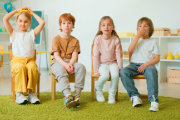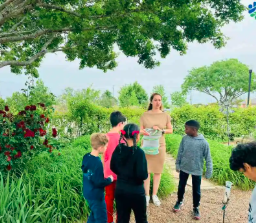Positive peer relationships in preschool lay the groundwork for a child’s social and emotional development. At this early stage, children begin learning how to share, cooperate, and communicate with one another—skills that will benefit them throughout their school years and beyond. Fostering a caring and respectful environment helps young learners build strong, healthy connections with their peers.
Why Peer Relationships Matter
Interactions with classmates offer children the chance to practice empathy, resolve simple conflicts, and understand different perspectives. These experiences help boost confidence and promote kindness. When children feel accepted and supported by their peers, they are more likely to engage actively in group activities and feel a stronger sense of belonging.
Creating a Positive Classroom Culture
Preschool teachers play a key role in shaping how children relate to one another. Setting clear expectations about respectful behavior and using age-appropriate language to guide social situations can make a big difference. Activities like group storytelling, collaborative art projects, or circle time discussions allow children to express themselves and connect with others in a safe setting.
Helping Children Navigate Social Challenges
It’s natural for young children to encounter small disagreements or misunderstandings. Gently guiding them through these moments helps them develop problem-solving skills. Teachers and caregivers can model positive ways to express feelings, encourage taking turns, and highlight the value of listening to others.
Involving Families in the Process
Family involvement is another key to encouraging healthy peer interactions. When parents and caregivers reinforce positive social behaviors at home—like sharing, using polite words, or expressing emotions in healthy ways—children are more likely to bring those habits into the classroom.
Conclusion
By nurturing respectful and supportive relationships among peers, preschool classrooms become welcoming places where every child can thrive. With the help of thoughtful teaching strategies and family collaboration, young learners develop the social skills they need to build friendships and grow with confidence.


